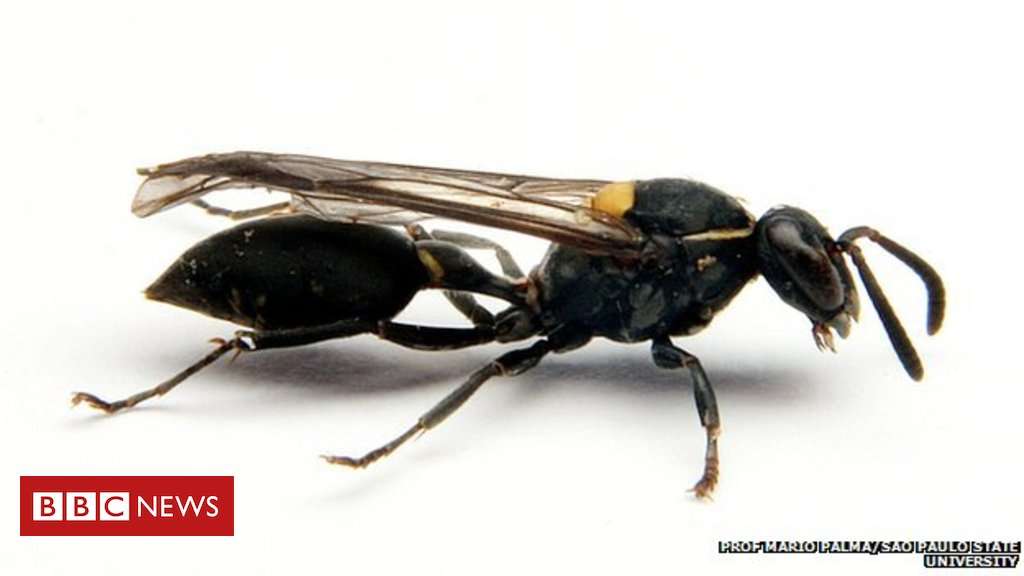Image copyright Prof Mario Palma/Sao Paulo State University
The venom of a wasp native to Brazil could be used as a weapon to fight cancer, scientists believe.
A toxin in the sting kills cancer cells without harming normal cells, lab studies suggest.
The University of Brazil team say the experimental therapy latches to tumour cells and makes them leak vital molecules.
The work is at an early stage and more studies are needed to check the method will work safely in humans.
Polybia paulista is an aggressive social wasp endemic in south-east Brazil.
Though its sting is largely seen as unwelcome, scientists increasingly believe it could be put to good use.
It contains an important toxin called MP1 which the insect uses to attack prey or defend itself.
And recent studies in mice suggest it may target and destroy cancer cells.
Prof Joao Ruggiero Netto and colleagues set out to discover how, by putting it under the microscope.
They found MP1 interacts with fat molecules that are abnormally distributed on the surface of cancer cells, creating gaping holes that allow molecules crucial for cell function to leak out.
In healthy cells, the same molecules are hidden on the inside. This means healthy tissue should avoid MP1's attack, the scientists say in Biophysical Journal.
Co-researcher Dr Paul Beales, from the University of Leeds, said cancer therapies that attacked the lipid composition of the cell membrane would be an entirely new class of anti-cancer drugs.
"This could be useful in developing new combination therapies, where multiple drugs are used simultaneously to treat a cancer by attacking different parts of the cancer cells at the same time," he said.
Dr Aine McCarthy, science information officer for Cancer Research UK said: "This early stage research increases our understanding of how the venom of the Brazilian wasp can kill cancer cells in the laboratory.
"But while these findings are exciting, much more work is needed in the lab and in clinical trials before we will know if drugs based on this research could benefit cancer patients."

DownTheRedditHoIe on June 12nd, 2018 at 23:40 UTC »
Article date: 1 September 2015?
jimbean66 on June 12nd, 2018 at 23:24 UTC »
Why does the BBC cover papers in Biophysical Journal which has an impact factor of 3? Dozens of studies are published a month about random things that treat cancer in a dish or maybe a mouse that will never help people. They are still useful progress, but it’s just so arbitrary what minor studies the press latches on to.
The100thIdiot on June 12nd, 2018 at 21:22 UTC »
I gotta ask. Who first had the idea to go check this out and why did they choose Brazilian Wasps over Australian platypuses(pi?)